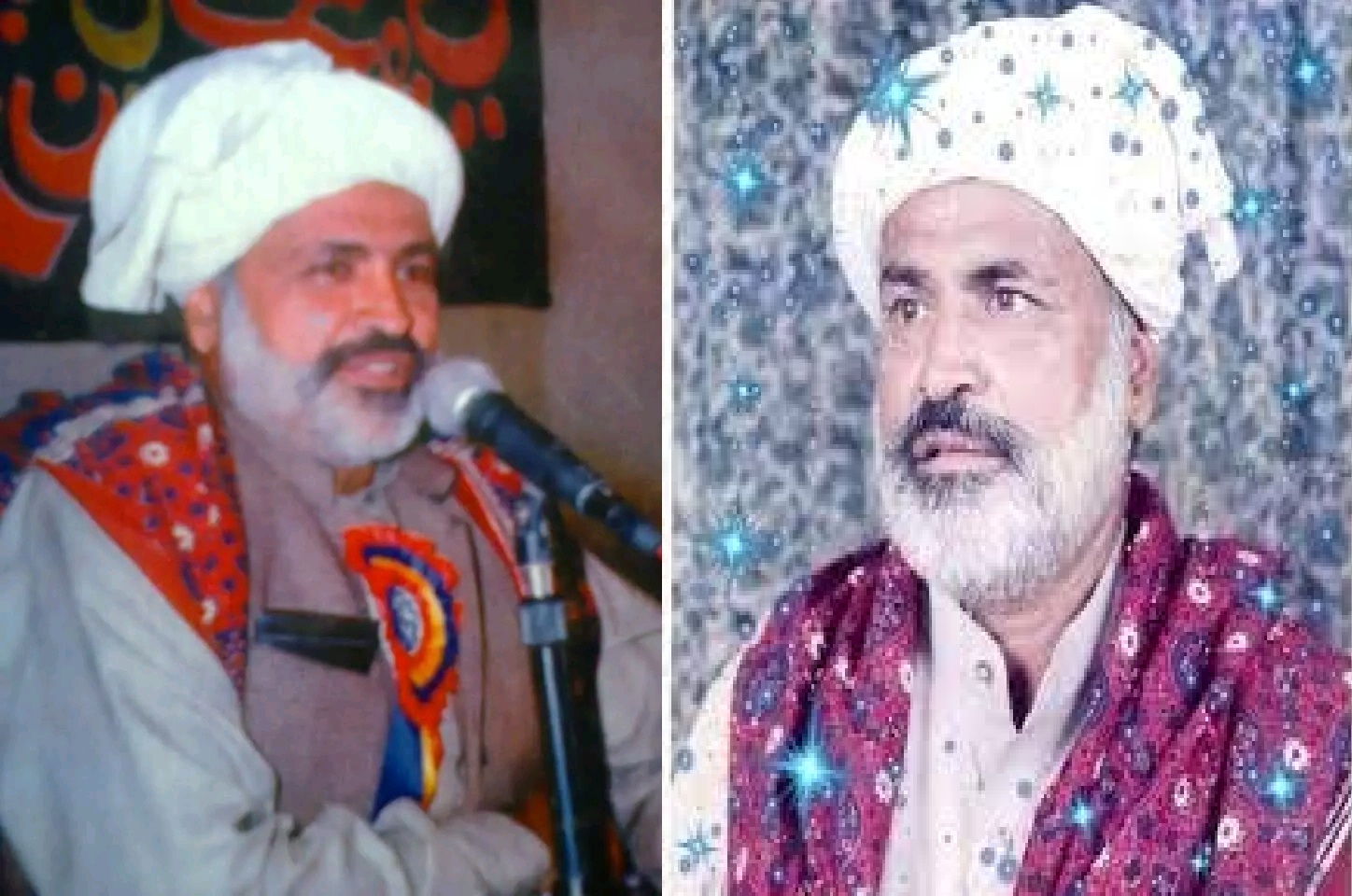Death Anniversary Of Sughar Abdul Rahman Mahesar: A Poet Who Gave Voice to Tradition
Writer: Aaqib Uddin Mahesar
In the heart of Sindh, where culture is steeped in rich history and tradition, few names stand as tall as Sughar Abdul Rahman Mahesar. A luminary of Sindhi folk poetry, Sughar Abdul Rahman voice has captured the soul of a land where the mysticism of Shah Abdul Latif Bhittai and Sachal Sarmast resonates with each heartbeat. Born with an inherent love for words and rhythm, Sughar Abdul Rahman poetry is not just an art form—it is a bridge between the past and the present, preserving the essence of Sindhi culture while appealing to the timeless human spirit. His words are an archive of collective memories, cultural expressions, and the emotional landscapes of Sindh. For decades, Mahesar has been an indispensable voice for the Sindhi people, articulating not just their hopes and dreams but also their struggles and realities.Sughar Abdul Rahman Mahesar has authored nearly 15 books, each of which is a testament to his deep-rooted love for Sindhi literature and folk traditions. His works, from profound poetry collections to essays on Sindhi cultural history, carry an innate sense of authenticity and dedication. Mahesar’s ability to encapsulate the essence of rural life, spirituality, and the complexities of human emotions in verses as simple as they are profound is unparalleled. His poetry speaks to the Sindhi villager, the urban intellectual, and the global reader, illustrating the wide reach of his literary talent. His mastery over the Sindhi language and his command over intricate poetic forms reflect his enduring influence in the literary world.Sughar Abdul Rahman Mahesar contribution to Sindhi literature has not gone unnoticed. Over the years, he has been the recipient of numerous prestigious accolades, including the revered Latif Award, the Sachal Award, and the Shahbaz Award—each a testament to his influence in the Sindhi cultural landscape. These awards, while marking individual achievements, also reflect his dedication to preserving the folk traditions of Sindh. His contributions have cemented his status as a literary figure whose legacy will endure for generations. However, Sughar Abdul Rahman Mahesar ambition was never rooted in the pursuit of fame or accolades. For him, writing was a form of spiritual and cultural expression—a means of immortalizing Sindhi values, customs, and struggles for future generations.At the core of Sughar Abdul Rahman Mahesar poetry lies a deep-seated reflection on love, both earthly and divine. His exploration of human emotions often intersects with a mystical search for meaning, drawing inspiration from Sufi traditions, especially the teachings of Shah Abdul Latif Bhittai and Sachal Sarmast. In many of his works, Sughar Abdul Rahman Mahesar uses the metaphor of love as a lens through which he analyzes the relationship between humanity and the divine. His portrayal of love is not confined to romantic expression; it transcends into philosophical inquiries about the nature of existence, the purpose of life, and the eternal connection between humans and the cosmos.Mahesar’s poetry also addresses themes that are intricately tied to rural life. His portrayal of the farmer, the weaver, and the laborer reflects his deep empathy for those who toil under the harsh sun of Sindh. Through his verses, he highlights the dignity of their labor, the struggles they face, and their unbreakable bond with the land. These themes are particularly resonant in today’s age of modernization, where rural traditions are slowly being eroded by urbanization. Sughar Abdul Rahman Mahesar work serves as a reminder of the intrinsic value of these traditions and the need to preserve them.While his poetry is often viewed as a reflection of Sindh's past, it is equally a commentary on its present and future. Sughar Abdul Rahman Mahesar works offer a window into the changes that have taken place in Sindhi society over the decades—from colonial rule to the partition of India, to the gradual modernization of Sindhi culture. Through his poetry, Sughar Abdul Rahman Mahesar captures the tension between tradition and modernity, celebrating the former while cautiously reflecting on the latter. His deep connection to Sindh and its people has allowed him to articulate the joys and sorrows, triumphs and defeats, and hopes and anxieties of his generation and those that follow.Moreover, his poetry addresses the socio-political issues that have shaped the region. From land reforms and peasant movements to the impact of globalization, Sughar Abdul Rahman Mahesar work is deeply grounded in the realities of his time. In his more political works, he explores the themes of justice, inequality, and human dignity, drawing attention to the struggles of marginalized communities. Yet, his approach is never didactic; instead, his poetry is a gentle nudge that encourages reflection and awareness.Sughar Abdul Rahman Mahesar’s literary legacy extends far beyond his poetry. He has also been instrumental in promoting Sindhi folk traditions, preserving age-old stories, songs, and poems that are in danger of being forgotten. He sees his role as a poet not just as a creator but also as a custodian of Sindh’s cultural heritage. His efforts to document and share these traditions have had a lasting impact on Sindhi culture, ensuring that these voices from the past continue to resonate with future generations.In contemporary Sindhi literature, Mahesar’s influence can be seen in the works of many younger poets and writers who have been inspired by his style, themes, and dedication to preserving cultural heritage. His poetry has opened the door for new voices, encouraging a revival of interest in folk traditions and Sufi poetry. Through his work, Mahesar has established a blueprint for how poetry can be both a personal and collective expression, one that bridges the gap between the individual and the community, the personal and the universal.As we reflect on the life and work of Sughar Abdul Rahman Mahesar, it becomes evident that his contributions to Sindhi literature and culture are immeasurable. His poetry is more than a collection of words—it is a tapestry of emotions, memories, and philosophies that speak to the very core of human existence. Through his verses, Mahesar has captured the beauty and complexity of life in Sindh, offering readers a lens through which they can understand the world around them. His work is timeless, not only because it is deeply rooted in tradition but also because it speaks to universal truths that transcend the boundaries of culture and time.
Writer: Aaqib Uddin Mahesar



Comments (0)